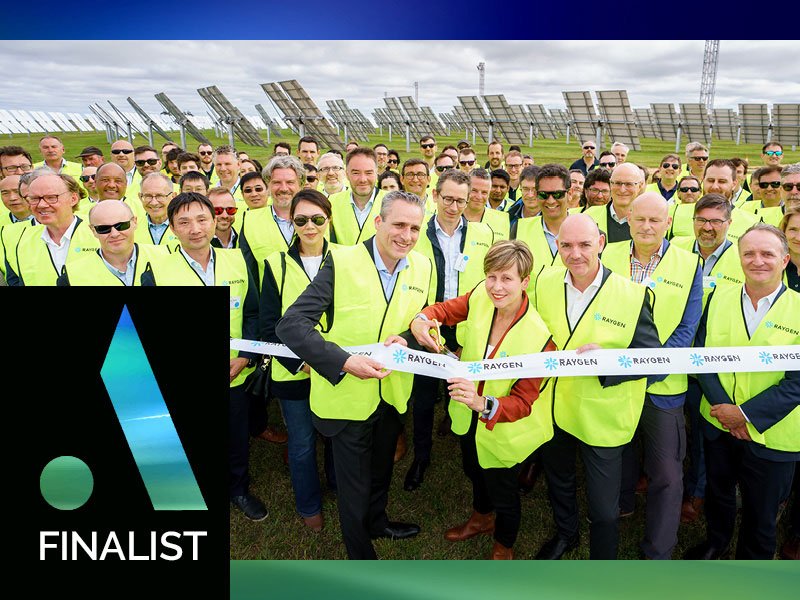What began as a backyard experiment involving a wine cask is now a pioneering solar thermal storage solution with tens of millions of dollars in funding.
In the 1970s, John Lasich built a device in his backyard to reflect and concentrate sunlight onto solar cells to generate extra power, using the bladder from a wine cask. The backyard experiment, which focused the light, led to more than 100 times the power being produced.
Over the decades since, Mr Lasich has continued to develop this idea. In 2010, he founded the company RayGen to commercialise this technology.

The wine cask bladder has now been replaced with giant mirrors which reflect sunlight onto the company’s unique super-strength solar cells, designed and manufactured in Melbourne.
But in 2018, the RayGen team realised they had a problem. With large amounts of solar already being deployed in the market, the value of electricity in the daytime had fallen, and grids were saturated.
The company consulted with its clients, and found out that the market was in desperate need of a bulk storage option to soak up the low-value excess renewable energy and allow it to be used when it’s needed most at peak times, often after dark.
So RayGen developed its own electro-thermal energy storage which is capable of storing solar power and sending it to customers in the evening, when electricity prices are typically higher.
The technology has now been backed by the likes of Equinor Ventures, SLB, Chevron Tech Ventures, Photon Energy Group, AGL Energy and the Australian government’s ARENA.
RayGen is a finalist in the InnovationAus 2023 Awards for Excellence in the Energy and Renewables category. You can secure your tickets to the black-tie event here.
RayGen’s two innovations are co-located, with solar and storage in the same facility. The field of mirrors is used to focus sunlight onto a receiver tower. At the top of the tower are solar modules that generate electricity.
Water is also pumped up and down the tower, capturing the heat and transferring the thermal energy to a pit of hot water nearby. This hot water is then used to drive a turbine and generate electricity.
RayGen is based in suburban Melbourne, with ongoing projects in regional Victoria, South Australia and New South Wales.
The company closed a $55 million Series C round in October 2021.
RayGen aims to use its technology to accelerate the clean energy transition. Its facilities have a 50 MWh capacity and 17-hour duration.
A number of large energy companies are now looking to integrate RayGen’s technology.
The Dutch-owned Photon Energy Group is developing a 200-megawatt plan which will cost about $600 million, while AGL Energy is considering building three plants across Australia using RayGen’s solar thermal technology.
The InnovationAus 2023 Awards for Excellence are proudly supported by Investment NSW, AusIndustry, Australian Computer Society, Technology Council of Australia, Agile Digital, CSIRO, TechnologyOne, IP Australia, METS Ignited and Q-CTRL. You can book your seat – or book a table – for these awards right here.
The finalists for the all of the InnovationAus Awards for Excellence are an incredible set of companies. Have your say in which of these innovators becomes the People’s Choice.
Protecting your great ideas with intellectual property (IP) rights can lead to lasting benefits for your growing business. IP refers to creations of the mind, such as a brand, logo, invention, design or artistic work. Head to the IP Australia website to find out more about IP, and how it might help your business.
Do you know more? Contact James Riley via Email.
